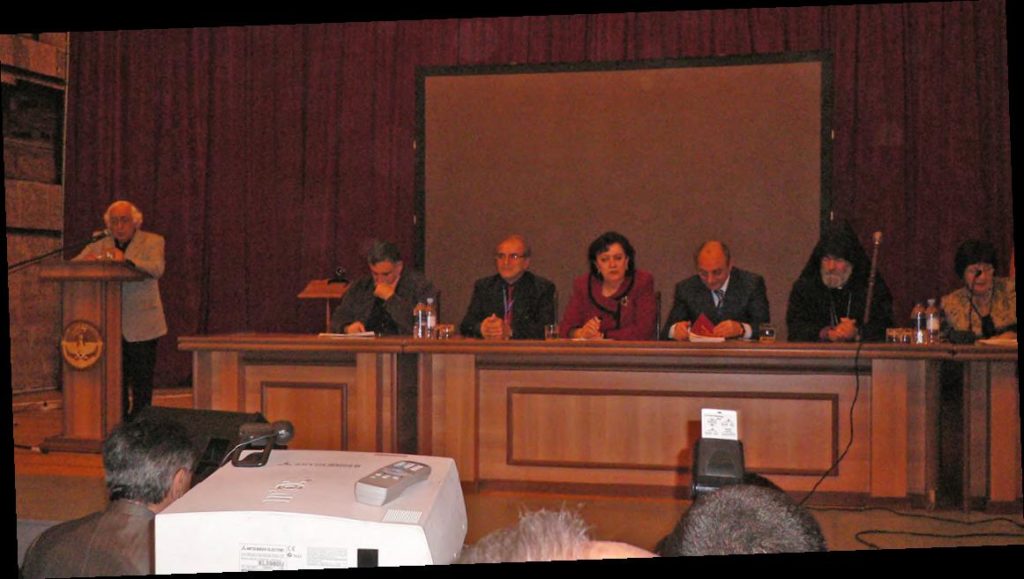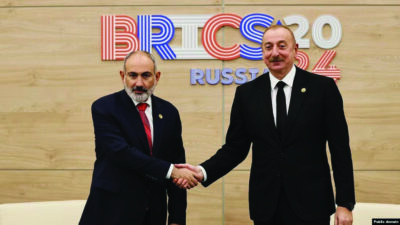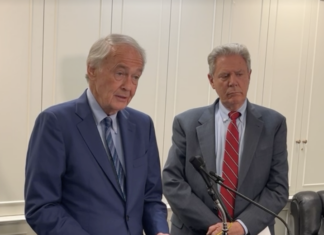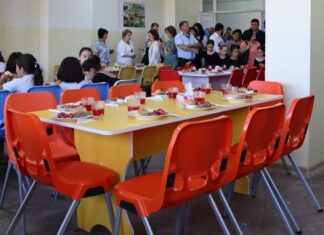By Hagop Vartivarian
STEPANAKERT, Karabagh — It wasn’t easy, of course, to assemble approximately 200 journalists from 26 different countries in Stepanakert, the capital of Nagorno Karabagh. After this year’s busy summer schedule of the Diaspora Ministry of the Republic of Armenia, in particular, immediately following the “Ari Tun” [Come Home] initiative and prior to the assembly of businessmen and heads of banks at the beginning of autumn, the organization of the fifth Pan-Armenian Conference of Journalists shows per se how indefatigable the minister, Hranush Hakobian, is. She tries, as much as possible, to do justice to the ministry’s commitments, giving equal weight to each initiative that has to do with Armenia-Diaspora-Artsakh ties.
Guided by experience, programs are developed with the expectation that they will achieve their main initial goals. If those programs turn out to be half successful, under today’s conditions we generally derive a feeling of satisfaction and consider them to be crowned with success. However, in this case, the conference held from October 12-16, whose them was “21st- Century Challenges, Informational Security and Armenian Journalism,” was convened to discuss important pan- Armenian issues, whose solution requires the marshaling of the journalistic potential of the Armenian people. At the same time, it is time to forget the nonsensical interparty strife of the past and the hidden internal political agendas so that we can create, with single-mindedness of purpose, international and national public opinion in favor of Armenia’s prosperity, Artsakh’s self-determination and the preservation of the diaspora. And, as the fourth estate, we should demand responsibility on the part of our mass news media, invite Armenians to take it seriously, in the first place, as regards to journalists. It is in this sense that it can be said that the conference registered a success.

This conference provided an opportunity to focus our attention on the present issues of the Nagorno Karabagh Republic and, especially, to become acquainted with its strong institutions and factors. Meetings with NKR President Bako Sahakian, National Assembly President Ashot Ghoulian, Defense Minister Gen. Movses Hakobian, Foreign Minister Georgi Petrossian and Archbishop Parkev Martirossian, Primate of Artsakh, created opportunities, especially for us diasporan Armenian journalists, to know the real Artsakh and its struggle for survival. It was also an opportunity to enjoy the cultural life of the Armenians of Artsakh in both its classical and popular facets.
Journalists got to know their colleagues and their difficulties, which, in the diaspora, are generally of a financial nature. Added to this is the problem of enticing new blood into the journalistic profession. In the case of Artsakh too, the insufficiency of financial means is noticeable. Furthermore, in Armenia’s case, while the news media in the regions continue publishing by the traditional means in use prior to independence, there is an intense silent struggle in the capital between the pro-government and oppositionist press; the latter is a natural phenomenon in the democratic process, without becoming reduced to yellow journalism. The development and increased popularity of modern news media was noticeable. Television, the Internet and radio, particularly in the principal communities of the Middle East, have made many strides. For the first time too, the conference established contact between Stepanakert and the heads of the media working in Los Angeles, Beirut, Kuwait and the Arab Emirates.
It was a joy to see the large number of young journalists come from Armenia and Artsakh. Their interest in the work being done by those of us in the diaspora was surprising. Generally speaking, female journalists have begun to occupy their place in the journalistic field, as is the case in the United States during the past decade. Unfortunately, there wasn’t an opportunity to establish closer contact with the heads of news media in the newly forming diaspora; i.e., the former Soviet Union, as well as the countries of Eastern Europe and Spain. There wasn’t enough time and, in a way, they remained congregated together around the table at meal times.








